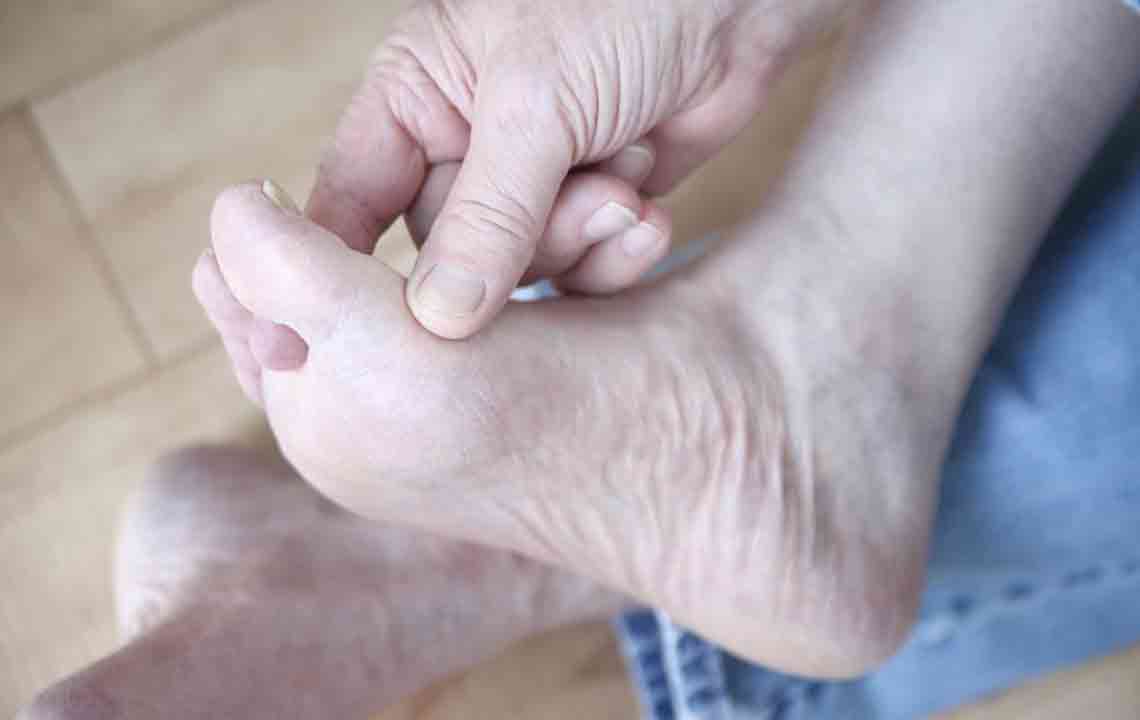Comprehensive Lifestyle Approaches to Maintain Optimal Joint Health
This comprehensive guide explores effective lifestyle strategies to support joint health, emphasizing weight management, low-impact exercise, alternative therapies like acupuncture, stress reduction techniques, and anti-inflammatory nutrition. Implementing these habits can prevent joint deterioration, alleviate pain, and improve mobility, enabling a higher quality of life. Suitable for those experiencing joint issues or seeking preventive care, this article provides evidence-based tips to enhance musculoskeletal health naturally and holistically, fostering long-term joint wellness and resilience.

Comprehensive Lifestyle Approaches to Maintain Optimal Joint Health
Joint and bone health are critical components of overall well-being, impacting mobility, independence, and quality of life. From minor injuries like sprains or fractures to chronic conditions such as osteoarthritis or rheumatoid arthritis, maintaining healthy joints is essential to prevent pain, stiffness, and functional limitations. Early intervention and proactive management can significantly improve outcomes, reduce the risk of disability, and promote long-term joint resilience. Implementing effective lifestyle strategies can serve as a natural, non-invasive way to support joint health, enhance mobility, and prevent deterioration over time.
Why Prioritizing Joint Health Matters
Joints are complex structures that facilitate movement and bear the body's weight. They comprise bones, cartilage, ligaments, tendons, and synovial fluid, all working together to enable smooth motion. When any component becomes compromised—due to injury, aging, or disease—joint function suffers, causing pain and limited mobility. Neglecting joint health can lead to chronic issues such as osteoarthritis, which affects millions worldwide, significantly impacting daily life and independence. Therefore, proactive management through lifestyle choices is vital to preserve joint function and quality of life.
Effective Lifestyle Strategies for Enhancing Joint Well-being
Adopting targeted habits can serve as effective tools in preserving joint health. These strategies encompass weight management, suitable physical activity, alternative therapies, mental health practices, and nutritional supplements. Each approach contributes uniquely to maintaining joints, reducing inflammation, alleviating pain, and supporting overall musculoskeletal health.
1. Maintain a Healthy and Stable Body Weight
Excess weight is one of the leading contributors to joint problems, especially in weight-bearing joints like hips, knees, and ankles. Every extra pound adds additional pressure, accelerating cartilage breakdown and increasing the risk of osteoarthritis. For instance, each pound of weight loss can reduce knee joint stress by approximately four pounds during activity. Maintaining a balanced, nutritious diet coupled with regular physical activity helps in achieving and sustaining an ideal weight, directly benefiting joint health. Weight management not only prevents further joint deterioration but also alleviates existing pain and improves functional mobility.
2. Engage in Regular, Low-Impact Physical Activities
Consistent movement is essential to prevent joint stiffness, improve flexibility, and promote overall joint health. While high-impact exercises like running or jumping may seem beneficial but often exacerbate joint issues, low-impact activities are gentle yet effective in supporting joint mobility. Swimming, water aerobics, cycling, and brisk walking are excellent options that minimize joint stress while strengthening muscles around joints, providing stability and reducing pain. Incorporating such activities into daily routines enhances circulation, reduces inflammation, and fosters joint resilience over time. It is advisable to consult healthcare providers or physical therapists to craft personalized exercise regimens tailored to individual needs and conditions.
3. Explore Alternative Therapies like Acupuncture
Acupuncture involves inserting fine needles into specific points on the body to restore energy balance and promote natural healing. Recognized by the World Health Organization, acupuncture has been used for centuries to treat various ailments, including joint pain and inflammation. Research indicates that it may help stimulate blood flow, reduce pain perception, and relax tense muscles around affected joints. While individual responses vary, many patients find acupuncture to be a beneficial complementary therapy alongside conventional treatments. Choosing certified practitioners ensures safety and maximizes therapeutic benefits.
4. Practice Mindfulness and Stress Reduction Techniques
Chronic stress, anxiety, and depression can exacerbate physical symptoms, including joint discomfort. Mindfulness meditation, deep breathing exercises, and relaxation techniques help in lowering stress hormones, reducing muscle tension, and alleviating pain perception. Regular meditation practice can strengthen mental resilience and improve cognitive responses to chronic pain, making it easier to cope with joint conditions. Scientific studies support the role of psychological well-being in physical health, highlighting that stress management is a crucial component of comprehensive joint care.
5. Nutritional Support with Healthy Fats and Anti-inflammatory Foods
Nutrition plays a pivotal role in maintaining joint integrity. Omega-3 fatty acids, found abundantly in fatty fish like salmon, mackerel, and sardines, are well-documented for their anti-inflammatory properties. They help reduce joint inflammation, stiffness, and pain associated with arthritis. Supplements derived from fish oil or plant sources such as flaxseed, chia seeds, and walnuts can further support joint health. Additionally, seeds like black currant, borage, hemp, and evening primrose contain gamma-linolenic acid (GLA), which also exhibits anti-inflammatory effects. Incorporating these nutrients into your diet can significantly improve joint function and reduce disease progression.
Conclusion: Embracing a Holistic Approach to Joint Wellness
Maintaining healthy joints is a multifaceted endeavor that combines attention to diet, physical activity, mental health, and proactive therapies. By adopting a comprehensive lifestyle approach—focused on weight management, safe exercise, alternative treatments, stress reduction, and proper nutrition—you can effectively support joint health, alleviate discomfort, and enhance mobility. Early intervention and consistent habits are key to preventing chronic joint conditions and ensuring a high quality of life well into older age. Remember, consulting healthcare professionals for personalized advice and treatment plans is essential in creating a sustainable joint health strategy tailored to your individual needs.





